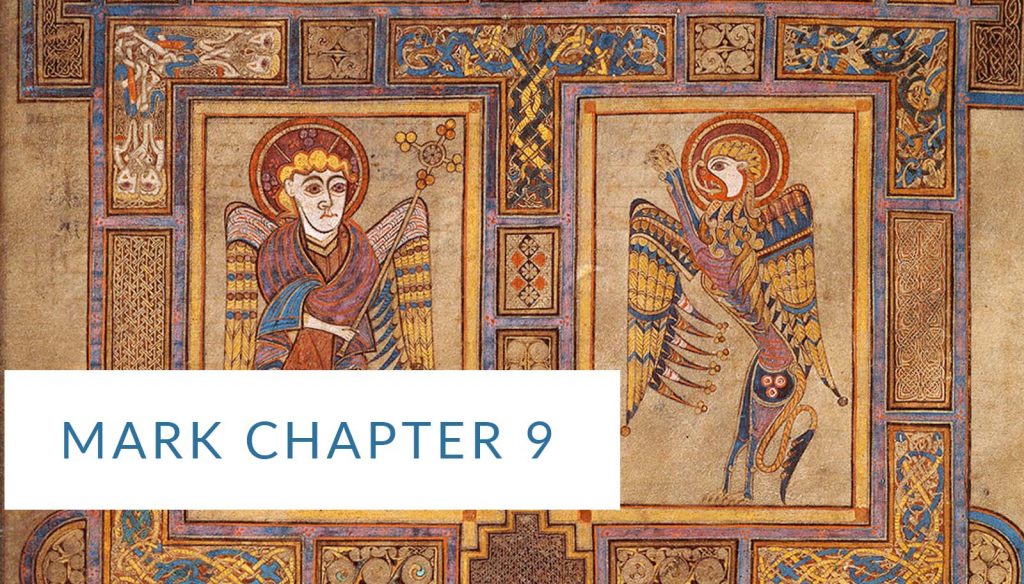This week’s readings are all from Mark chapters 8-9. Click here to see the full reading and a list of each day’s readings. Each day’s segments of the readings will be posted on this site during the week.
Today's Reading
As they were coming down from the mountain, he gave them orders not to tell anyone what they had seen until after the Son of Man had risen from the dead. They kept this statement to themselves, discussing what this rising from the dead meant.
Then they asked him, “Why do the experts in the law say that Elijah must come first?” He said to them, “Elijah does indeed come first, and restores all things. And why is it written that the Son of Man must suffer many things and be despised? But I tell you that Elijah has certainly come, and they did to him whatever they wanted, just as it is written about him.”
When they came to the disciples, they saw a large crowd around them and experts in the law arguing with them. When the whole crowd saw him, they were amazed and ran at once and greeted him. He asked them, “What are you arguing about with them?” A member of the crowd said to him, “Teacher, I brought you my son, who is possessed by a spirit that makes him mute. Whenever it seizes him, it throws him down, and he foams at the mouth, grinds his teeth, and becomes rigid. I asked your disciples to cast it out, but they were not able to do so.” He answered them, “You unbelieving generation! How much longer must I be with you? How much longer must I endure you? Bring him to me.” So they brought the boy to him. When the spirit saw him, it immediately threw the boy into a convulsion. He fell on the ground and rolled around, foaming at the mouth. Jesus asked his father, “How long has this been happening to him?” And he said, “From childhood. It has often thrown him into fire or water to destroy him. But if you are able to do anything, have compassion on us and help us.” Then Jesus said to him, “‘If you are able?’ All things are possible for the one who believes.” Immediately the father of the boy cried out and said, “I believe; help my unbelief!”
Now when Jesus saw that a crowd was quickly gathering, he rebuked the unclean spirit, saying to it, “Mute and deaf spirit, I command you, come out of him and never enter him again.” It shrieked, threw him into terrible convulsions, and came out. The boy looked so much like a corpse that many said, “He is dead!” But Jesus gently took his hand and raised him to his feet, and he stood up. (Mark 9.9–27 NET)
Parallels to This Passage
I'm looking at the miracles of Jesus now in a slightly different way. Was he dealing with a culture who seemed to bind physical infirmities directly with spiritual deficiencies? I think Jimmy referred to this as a shamanistic culture, or something similar. Throughout his ministry, Jesus must have been struggling with how to present the spiritual side of one's life that can be totally separate from physical sickness. But amidst the first century culture, this must have been a tremendous challenge. Interesting to look at his miracles in a different light. I'm pretty sure he did not want to be known as just another shaman running around.
I believe. Help my unbelief. This has always had such meaning for me. Do we believe…enough?
Jesus must have been struggling with how to present the spiritual side of one's life that can be totally separate from physical sickness.
There is a question for me about how much Jesus knew about how things worked scientifically. This is the issue of his humanity. I think it is easy for us to think of Jesus as having constant divine-knowledge and so he must have understood things in terms of modern science (and even that says a lot about our own pride of knowledge); however, the Gospel of Luke indicates that Jesus "grew in wisdom" (Luke 2:52) and Paul says Jesus "learned obedience by the things he suffered" (Hebrews 5:8). It's fascinating to think about a human Jesus who is both learning and limited in his human knowledge, while he is unlimited in terms of his identity as God at the same time. Jesus, as a human, it seems, had to learn, as we do: through experience, instruction, and the voice of the Spirit. But he was clearly more attuned to the latter, if not all of it.
“…But I tell you that Elijah has certainly come, and they did to him whatever they wanted, just as it is written about him.” Is this referring to John the Baptist?
